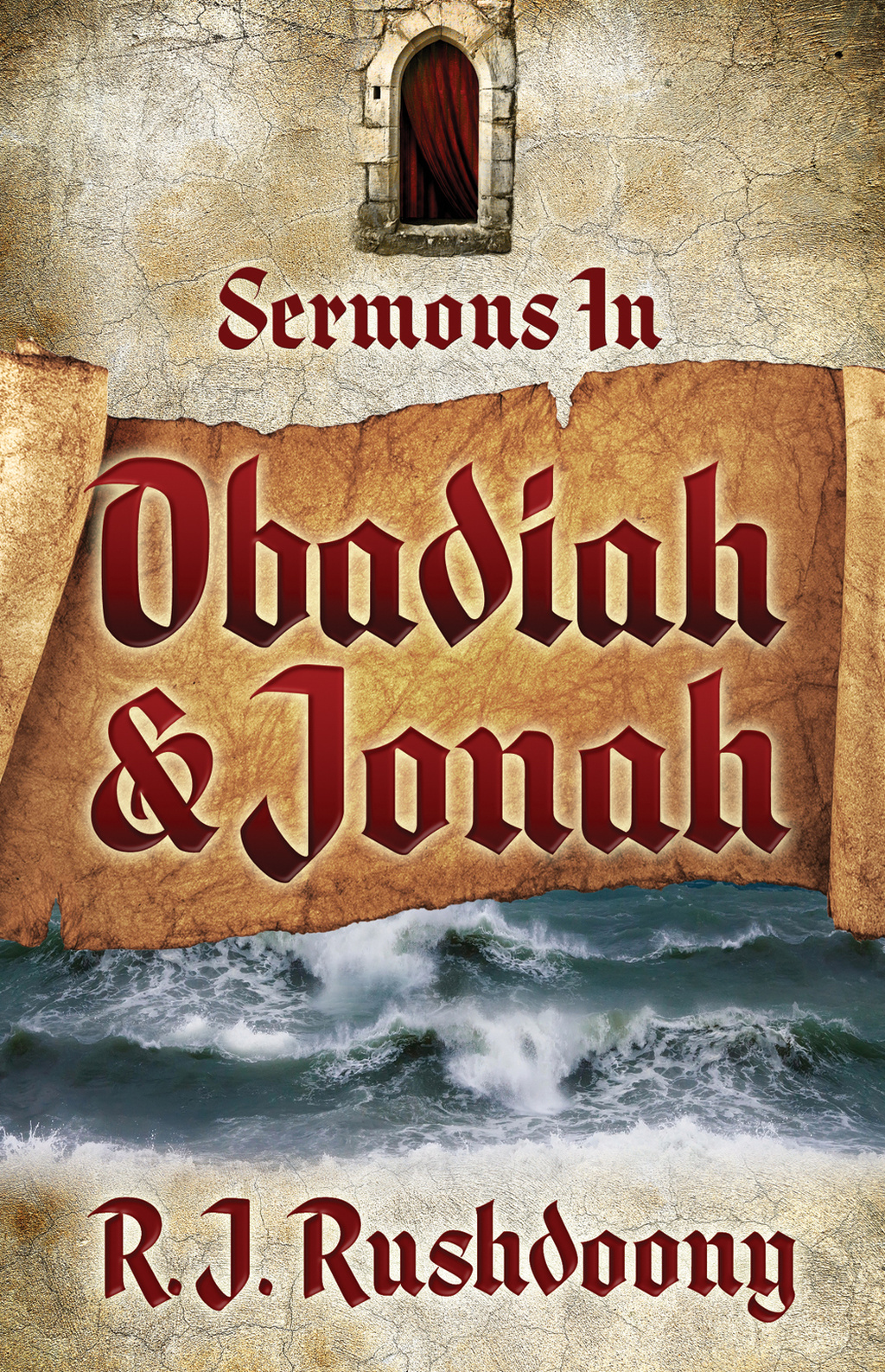
Sermons in Obadiah and Jonah
Rushdoony demonstrates that we play the part of Jonah when we second-guess God, complain about the work He gives us, or are peevish when outcomes are not to our liking. Rushdoony once wrote to himself in his own Bible, “JONAH RUSHDOONY, is it your gourd vine or the Lord’s work that fills your prayers and thoughts? ARISE, Nineveh is around you and its thousands of needy souls.” These sermons will both challenge and inspire your faith.
eBook , Paperback

- R. J. Rushdoony
Obadiah is a prophecy of judgment on Edom – descendants of Esau who bore a grudge against Judah, the descendants of Jacob. The Edomites viewed all the wealth and prosperity of Judah as rightfully theirs. This centuries-old envy caused them to seek every opportunity to do harm to God’s people. St. Augustine saw in Obadiah an early example of the City of Man opposing the City of God. R. J. Rushdoony brings the conflict even closer, condemning the “spiritual Edomites” of our day who believe evildoers have the power to frustrate the progress of the Kingdom of God.
Jonah provides us with dramatic examples of God’s judgment and mercy. When reading Jonah, we tend to focus on God’s wrath upon Jonah while forgetting that his assigned mission was one of grace to Nineveh, capital of one of the most brutal empires in history. Despite being delivered from the fish, Jonah still complained when God showed mercy upon Nineveh. Rushdoony demonstrates that we play the part of Jonah when we second-guess God, complain about the work He gives us, or are peevish when outcomes are not to our liking. Rushdoony once wrote to himself in his own Bible, “JONAH RUSHDOONY, is it your gourd vine or the Lord’s work that fills your prayers and thoughts? ARISE, Nineveh is around you and its thousands of needy souls.”
These sermons will both challenge and inspire your faith.

- R. J. Rushdoony
Rev. R.J. Rushdoony (1916–2001), was a leading theologian, church/state expert, and author of numerous works on the application of Biblical law to society. He started the Chalcedon Foundation in 1965. His Institutes of Biblical Law (1973) began the contemporary theonomy movement which posits the validity of Biblical law as God’s standard of obedience for all. He therefore saw God’s law as the basis of the modern Christian response to the cultural decline, one he attributed to the church’s false view of God’s law being opposed to His grace. This broad Christian response he described as “Christian Reconstruction.” He is credited with igniting the modern Christian school and homeschooling movements in the mid to late 20th century. He also traveled extensively lecturing and serving as an expert witness in numerous court cases regarding religious liberty. Many ministry and educational efforts that continue today, took their philosophical and Biblical roots from his lectures and books.